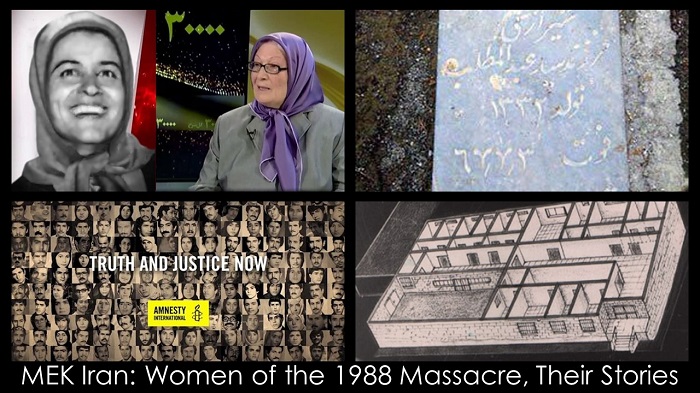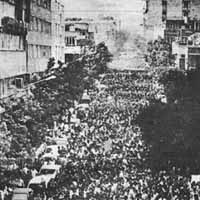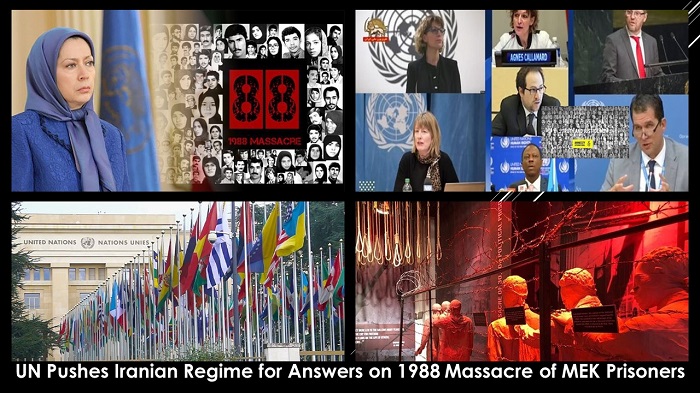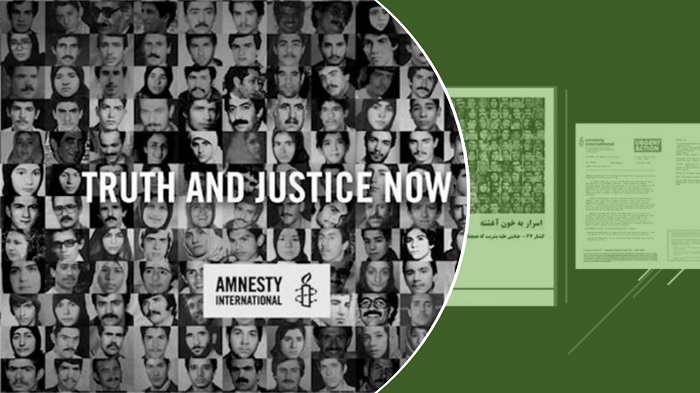
Women of the 1988 Massacre: Fatemeh (Razieh) Ayatollah-Zadeh Shirazi, a victim of the 1988 massacre
The National Council of Resistance of Iran (NCRI) Women’s Committee published a series of articles about women who died during the 1988 Massacre of 30,000 MEK political prisoners. Mrs. Fereshteh Akhlagh shared the story of Fatemeh (Razieh), Ayatollah-Zadeh Shirazi, with the NCRI Women”s Committee for the January 12, 2021 installment of Stories of Women’s Resistance. Shirazi’s story is summarized below.
Political Activism
Razieh Ayatollah-Zadeh Shirazi became a supporter of the MEK in the 1970s, at the age of 24, after earning her Bachelor’s degree in Physics from the University of Tehran. As a well-educated young woman living under the Shah’s regime, Razieh was active in a number of political causes, but she was forced to take her activities underground in 1975, due to the Shah’s ban on political activities.
#Iran #NeverGiveUp the struggle to make Iran a free and secular state to honor Iranians who have risked their life for freedom!https://t.co/ZNE0FmenQY
Respect Iranian ppl's struggle and sacrifices to #FreeIran.
— Women's Committee NCRI (@womenncri) January 13, 2021
On June 20, 1981, protest against the mullahs’
In 1979, the Shah was deposed, and Ruhollah Khomeini seized power. Opposition groups faced increasing pressure from the new clerical regime, and women lost their autonomy almost overnight. On June 20, 1981, the People’s Mojahedin Organization of Iran (PMOI / MEK Iran) held massive demonstrations in cities across Iran to peacefully protest the Islamic regime. Khomeini’s response was brutal. Hundreds of protesters were shot in the streets, and thousands more were arrested. Razieh was arrested at the Tehran protest. She was two months pregnant.

More than a half-million PMOI supporters attended a rally in Tehran on June 20, 1981, to protest against the mullahs’ encroaching totalitarian policies and support freedom and democracy.
Pregnancy and Loss
Razieh was imprisoned and tortured in Evin and Gohardasht prisons until her execution in the summer of 1988. One of her cellmates at Evin Prison described Razieh’s treatment during her pregnancy. Razieh was confined to solitary for the duration of her pregnancy and only allowed to leave her cell to use the restroom once or twice a day. As a result, she suffered kidney damage and had trouble walking.
Like many MEK political prisoners during the 1980s, Razieh was transferred to a hospital to deliver her baby but was told her daughter was stillborn. Razieh told her cellmate she could hear her baby cry. She was then sent back to prison immediately after giving birth.
Razieh’s cellmate described other torture at the hands of the guards: “She was interrogated and beaten every day. One day, when Razieh returned from interrogation, her whole body had been bruised. When we lifted her dress, we saw her back as if a black wax had been applied to her shoulders, and there was no intact area on her back. From her condition and the fact that she was vomiting blood, and from my medical experiences, I knew that her medical condition would lead to dialysis,” the NCRI article states.
“She laid unconscious in a corner … That night she bled excessively and was taken to the prison’s medical center. We did not hear from her until twenty days later. Once she did return there was nothing left of her. She had lost more than twenty kilos. Her face was withered and thin. ‘But her spirit was still the same,’” the article adds.

Amnesty International
Optimism in the Face of Death
A cellmate from Gohardasht Prison recounted her memories of Razieh in 1988, in the months before she was executed: “She was always looking for new initiatives and creative solutions. During the nights the guards did not turn off the lights so that the prisoners could not rest and get their sleep. To solve this problem, Razieh had made a cover for the cell light by recycling newspaper and nylon thread. Each night, we would cover the light after the guards left the ward after checking the cells. And in the mornings before the guards entered the room we would remove it. We did this as if we were raising and lowering a flag while singing an anthem. This in itself created a ritual for us, one that we looked forward to, and made the time bearable,” the cellmate remembered.
Razieh Ayatollah-Zadeh Shirazi was executed on September 25, 1988, as part of the mass execution of 30,000 MEK political prisoners. Her only crime was participating in a peaceful protest. Razieh was 36 years-old. She was married with a child.
To date, none of the perpetrators of the 1988 Massacre have faced justice for this crime against humanity. Many have gone on to hold high-ranking positions within the Iranian regime.

World Powers Shamed for Remaining Silent on 1988 Massacre
MEK Iran (follow them on Twitter and Facebook)
and People’s Mojahedin Organization of Iran – MEK IRAN – YouTube
